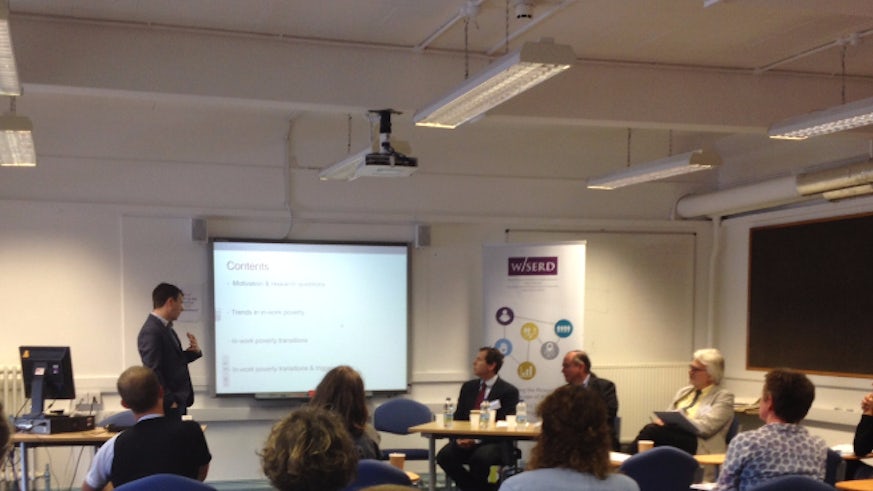In Conversation with Hout, Grusky and Snipp
18 July 2016

Jennifer Hampton, a PhD student at the School of Social Sciences, writes on a recent quantitative research workshop with visiting professors from Stanford and New York Universities.
Poverty, inequality, and big data were the topics under discussion at Monday’s quantitative research workshop held by WISERD. At this well-attended workshop colleagues from Cardiff University presented their work and welcomed a panel consisting of visiting professors from Stanford and New York Universities. The panellists included Professor Mike Hout (New York University), Professor David Grusky (Stanford University), and Professor Matthew Snipp (New York University). It was great to see attendees from across different schools, with both staff and postgraduate colleagues enjoying and engaging with the interesting presentations and discussion.
Three highly interesting and informative presentations were given by staff and postgraduate students based at Cardiff University. Dr Rod Hick (School of Social Sciences) presented early findings from a Nuffield-funded project examining in-work poverty in the UK (co-authored with Dr Alba Lanau). His presentation focused on the transitory nature of in-work poverty and gave some insight into the level of transitions in and out of in-work poverty, as well as what state these individuals transit too. Gwyther Rees (PhD student, School of Social Sciences) presented some findings from his study of child subjective wellbeing, whilst considering important implications in terms of policy usefulness. It was particularly interesting to hear about how subjective wellbeing changes as children move through adolescence and the gendered differences apparent in his data. In a slightly different approach, Dr Pete Burnap gave a presentation on the work of the Social Data Science Lab and the highly useful COSMOS tool for analysing ‘big social data’. It was fascinating to get an insight into how the software operates, along with the many applications for which it can be used.
Following the presentations, the panellists provided insightful comments and reflections about the presentations, along with some probing questions. Of particular note was the comment made by Professor Snipp, reflecting on Dr Burnap’s presentation, on how computational social science presents an exciting development akin to the birth of survey method design in the 30s and 40s. These comments and questions led to a lively, open discussion between panellists, speakers and attendees.
